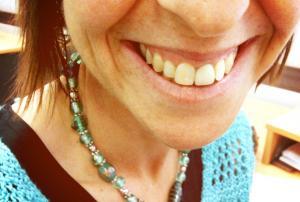This post is the latest in our effort to share with you the stories of real people who have struggled with addiction. Read more about their struggles and victories as they learn to live sober again.
 How many years have you been sober and how did drinking affect/damage your life?
How many years have you been sober and how did drinking affect/damage your life?
My last drink was on June 15, 1998.
I began drinking as a young teen - heavily and almost daily, right from the start - which meant that during my formative years I didn't develop healthy ways of coping with life. As a result, although I was academically and professionally successful, I was emotionally fragile and unable to deal with life without seeking solace in alcohol. Eventually, alcohol became the center of my life.
I was able to muddle through for quite a while, but by my early 30s, my drinking had seriously affected my ability to function. I couldn't concentrate, suffered from daily panic attacks, and blacked out nearly every night. However, I didn't want to admit that my drinking was creating these problems, so instead of addressing the issue, I quit working! I was married and had young children, so my decision to quit work wasn't questioned, but in the resulting isolation my addiction reached full bloom. Those last few years were sheer hell, and at age 36, after drinking for 25 years, I reached the end. I decided to quit drinking and have not taken a drink since I made that decision.
Has recovery been an ongoing struggle and how do you cope with it?
It was very difficult at first, but at this point it isn't a struggle at all.
I believe this is an important point. Sometimes, in our eagerness to convince people not to backslide, I think we send the message that recovery is not just a process but a never-ending struggle. That is not how it has been for me. I'm not minimizing the work involved, believe me. It took a long time, and it required immense commitment on my part. At the beginning I was sick, troubled, lost, and had no coping skills beyond drinking. You don't turn a situation like that around overnight. But the work I did, and the commitment I made at the very start, has allowed me to live my life in freedom...not in a permanent state of fear. I don't even really think of myself as being "in recovery" anymore; rather I see myself as someone who is simply living life.
Do you feel like you are missing anything now that you aren’t drinking—or do you feel like your life is better and you experience more now?
I absolutely don't feel that I am missing anything now that I'm not drinking. By the time I quit, drinking wasn't the least bit fun. Instead, it was a chore, like a ball and chain I dragged around for years. Quitting was not only an immense relief, but it provided me with the freedom to do things I could never have done while drinking. One extremely satisfying thing I've been able to do since I quit is to become involved with SMART Recovery, and with helping others to find their own road to recovery from addiction.
What do you recommend for someone just starting on their sobriety journey?
This is a hard question, because there are many different, valid approaches to recovery, and what helped me might not be right for the next person. I do think, though, that you can't go wrong by doing the following:
- Commit yourself to the change process. After quitting my own addiction and watching others do the same, I believe that a deep and genuine commitment to change is the single most important component of any successful recovery.
- Do some research and decide on a recovery approach that makes sense to you. Whether it be a recovery support group such as SMART Recovery or a 12 step program, whether it be professional treatment or individual counseling, whether you use one philosophy or combine bits and pieces of several, in the end it's like exercise: the approach that will help you is the one you will actually DO.
- Don't let anyone tell you that one particular philosophy is the only "right" way to approach recovery. This simply isn't true.
- Have a positive attitude. Don't think of recovery as giving something up, but as allowing yourself the freedom to enjoy your life.
- Be kind to yourself: Remember, you are more than your addiction.
"Julie" who has asked to share her story anonymously, is a volunteer with SMART Recovery, a leading self-empowering addiction recovery support group which helps people recover from all types of addictive behaviors.




